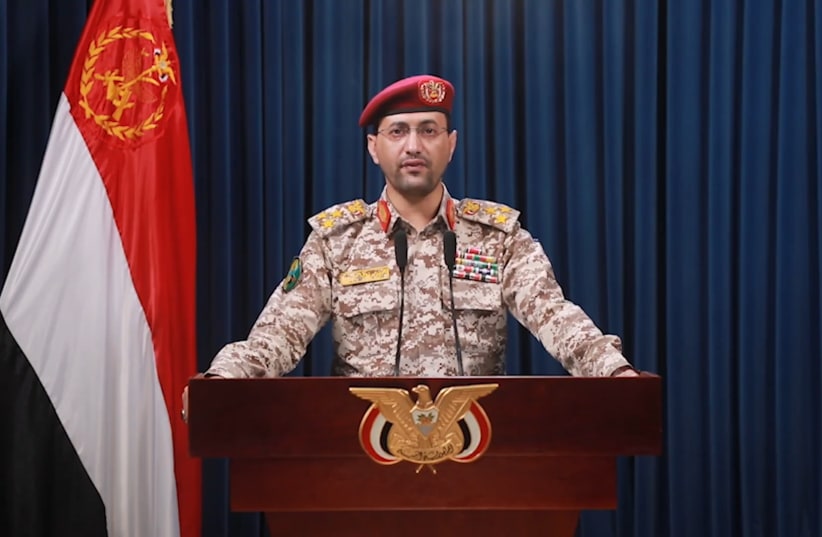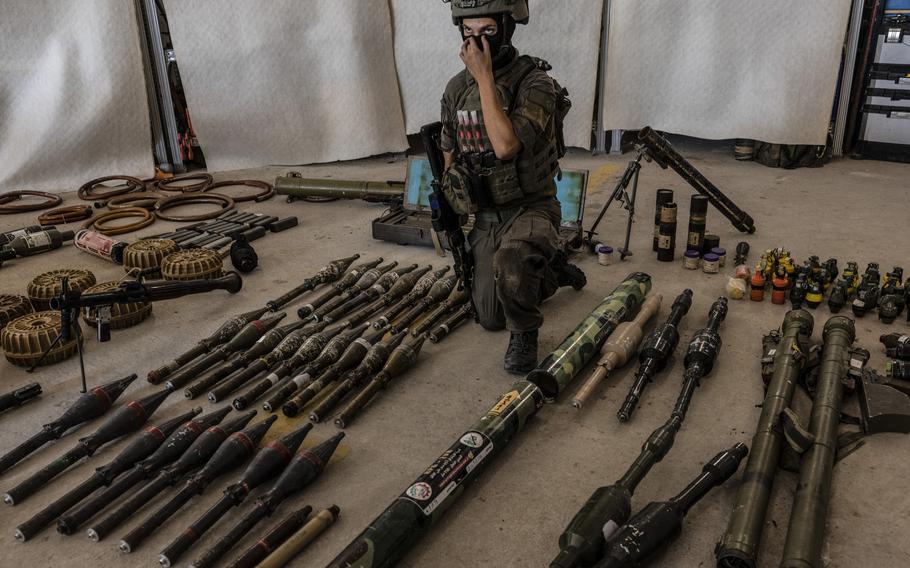Foreign
Fighter pilots laud precision of operation to strike Yemen: ‘An incredible feeling’

Pilots say they trained intensively for two weeks before attacking Houthi targets over rebels’ repeated attacks, were unaware of missile fired at central Israel during the sortie

Israeli Air Force pilots who struck Houthi targets in Yemen early Thursday told Hebrew media that the operation went exactly as they had been planning for weeks until getting the green-light from the government.

The strikes, which came in response to repeated attacks by Yemen’s Houthis, aimed to shut down ports used by the Iran-backed Houthis, and included Israel’s first-ever direct attack on the rebel-held capital of Sanaa.
Fourteen fighter jets took part in the operation — along with dozens of support aircraft — dropping some 60 munitions.
“There is a good feeling of having completed such a complex task and succeeded in doing it precisely,” one of the fighter pilots, identified only by his Hebrew initial “Nun,” was quoted as saying by Channel 12 news.
Another pilot, Samech, told the Walla news site that it was “a very long flight [that involved] refueling at night-time.”
“On the way there [we] dealt with synchronizing all the planes [and] making sure everything’s ready, and on the way back [we] thought about making it home safely,” he said. “The important thing is that there will be quiet here, and justice.”
At five-and-a-half hours and 2,000 kilometers (1,240 miles), the flight was the longest ever for Maj. Dalet, 26.
Footage released by the IDF shows Israeli airstrikes in Yemen and aerial refueling operations, early December 19, 2024. (Israel Defense Forces)
Dalet told Ynet that there was an emergency en route to Yemen when his monitor showed a technical issue with his fuel tank. He and his navigator had to manage the difficulty in mid-air.
Still, Dalet kept his cool, with he and his colleagues having trained intensively for the operation over the previous two weeks. “We practice a lot of contingencies and responses,” he said.
Dalet also said that until he touched down back in Israel, he was unaware that the Houthis fired a ballistic missile at Israel amid the operation.
The projectile was partially intercepted outside Israeli airspace by the long-range Arrow air defense system. However, the warhead didn’t explode in the air and crashed into an empty school building in the city of Ramat Gan, causing severe damage but no injuries.
Another Maj. Dalet, who helped guide the pilots from the IAF’s control room in Israel, said he had a hunch the Houthis would fire at Israel, and had prepared the saferoom in his home just in case.
“My wife entered it in the middle of the night,” he said. “Then we beat them up half an hour later. Was an incredible feeling.”
Lt. Col. Nun, one of the pilots who participated in the sortie, told Israel Hayom that the operation was his first time in Yemen, and that it gave him a sense of closure.
“My grandfather came from Yemen in Operation Magic Carpet,” he said, referring to the evacuation of Yemenite Jewry after Israel’s founding. “Back then, it was a country where Jews were ruled by others, and now we come from thousands of kilometers away to protect the state of Israel.”
An IAF pilot prepares to take off for an attack on Houthi sites in Yemen on December 19, 2024 (Israel Defense Forces)
The operation marked the third time Israel had attacked Yemen, after months of the Houthi rebels’ attacks on Israel as well as on commercial shipping and naval vessels in the Red Sea.
Israel has succeeded in shooting down most of the Houthis’ projectiles. Others have crossed into Israel, including a drone that killed a man and injured several people in Tel Aviv in July.

Yemenis brandish rifles and chant slogans against Israel during a rally in the Houthi-controlled capital Sanaa, November 29, 2024. (Mohammed Huwais / AFP)
The Houthi attacks began about a month after their fellow Tehran-supported ally, the Palestinian terror group Hamas, invaded Israel on October 7, 2023, to kill some 1,200 people and take 251 hostages, sparking the war in Gaza.
The rebels claim their attacks are in support of Gaza amid the war there, but have struck many ships with no connection to Israel.

























